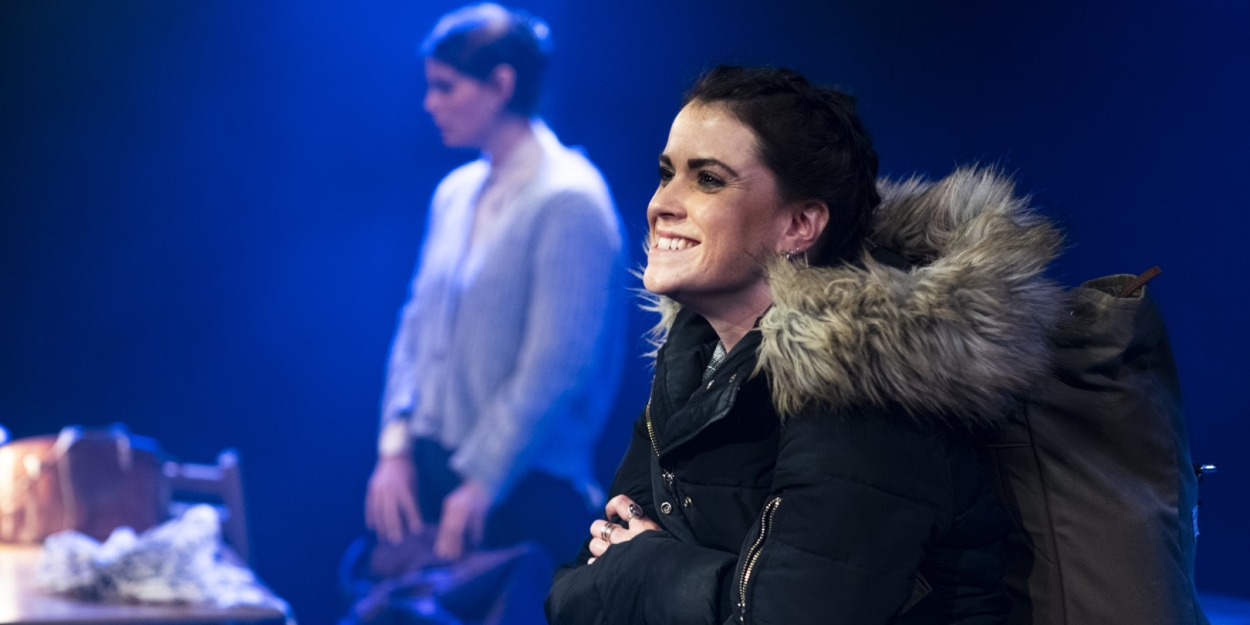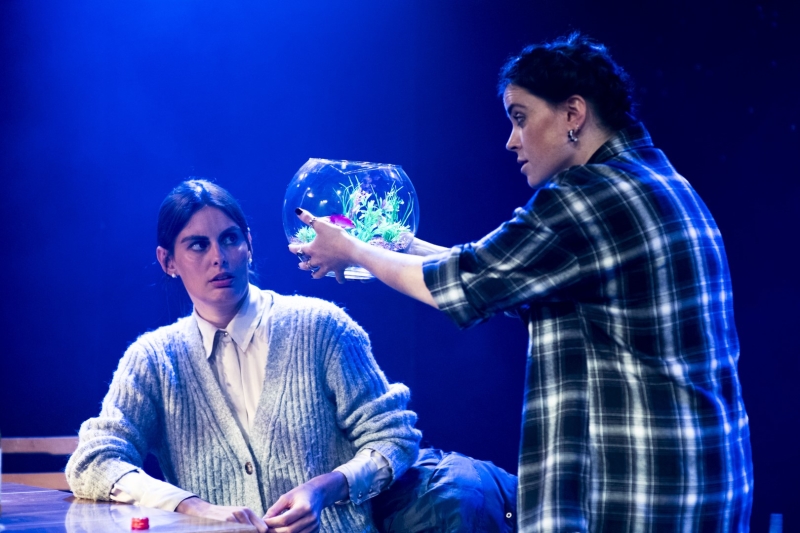Review: SPARKS, Jack Studio Theatre
Two-hander about the broken relationship between two women is hamstrung by its ambition

 Two women stare at each other in the rain outside a front door. One starts talking and doesn’t stop; the other starts not talking and also doesn’t stop. Eventually, they go inside and more talk comes, but only from one side.
Two women stare at each other in the rain outside a front door. One starts talking and doesn’t stop; the other starts not talking and also doesn’t stop. Eventually, they go inside and more talk comes, but only from one side.
We learn that they are sisters and that one abandoned the other. The talker, Jess, is looking for some kind of absolution, but is at least equally keen on an explicit affirmation that she is not ‘mental’. We quickly surmise that she has much to be forgiven for and that she has had the word ‘mental’ used towards her in social and, probably (though not that specific term) in therapeutic environments - and that the wounds are still open.
The quiet one, Sarah, has suppressed emotions for so long that it takes time even to speak a word, never mind articulate how she feels after 12 years alone. She’s damaged too, the fissure between the two only even beginning to be bridged over alcohol. In vino veritas? Not really, the two are too uptight in their own ways for that, but we learn more of how the once close siblings split apart and then come together. All the time we’re wondering, “For how long though?”

Simon Longman’s new two-hander covers a lot of ground. We get mental health, family relationships, grief, alcohol and drug abuse, loneliness, the neuroses fostered by running away and the neuroses fostered by staying put, the difficulty of carving out one’s own space in a hostile world and potential salvation. Inevitably, it gets somewhat bitty, with exposition elbowing its way into the dialogue as another issue is brought into the relationship, more trauma excavated. That wouldn’t be so much of a problem, but not much actually happens beyond the ever more emotional conversation - until the last five minutes of the run-time.
Director, Julia Stubbs, delivers a pair of fine performances from her two principals. Emma Riches is all anxiety-suffused energy as Jess, burdened with baggage both real and metaphorical. Riches manages to gather some sympathy for a woman who is, objectively, too selfish and manipulative to deserve it. If we just condemn her (as many might in real-life) the play would collapse and so that nuance in performance is critical.
It takes longer to understand Lisa Minichiello’s Sarah. Her psychological issues are managed by a withdrawal from social life - a job, but no friends, a flat in a busy town, but no engagement with society, an anger at how her sister treated her displaced into an assault on a bullying swan. She has not even unpacked her belongings, but she doesn’t reject the bizarre offering of a goldfish, the significance of which only emerges in time.
The two sisters brought back memories of Steptoe and Son, with the comic moments (and there are plenty) emerging from the tragic situation in which two family members who cannot love each other find themselves. "Should I really be laughing?" is a good thought to have in a theatre - you get it in Shakespeare and Chekhov, and they're not bad at their craft.
The play is unafraid of tackling big issues, nor is it unwilling to venture into symbolism and the surreal, but there are too many moments in which the narrative drive stalls. We can be more trusted to construct the women’s backstories, so, during another anecdote from the past, one’s mind drifts to how Jess managed to find the seaside while never leaving The Midlands. That led to unwelcome thoughts about whether she was making the whole thing up, which really would have undermined the drama completely. She - probably - wasn’t.
Ultimately, Upper Hand Theatre has produced a bold play that never quite manages its considerable ambition nor provides the armature of narrative required to sustain its intense 90 minutes runtime. That said, the curtain comes with a real desire to find out what happens next. And maybe that points to a more natural home for the play - cut to 45 minutes and a pilot episode for a six part series. At double the length, it is both too short to address the issues that are introduced and too long to exist comfortably within its dramatic and emotional parameters.
Sparks is at the Jack Studio Theatre until 13 July
Photo images: Tim Stubbs Hughes
Reader Reviews
Videos

